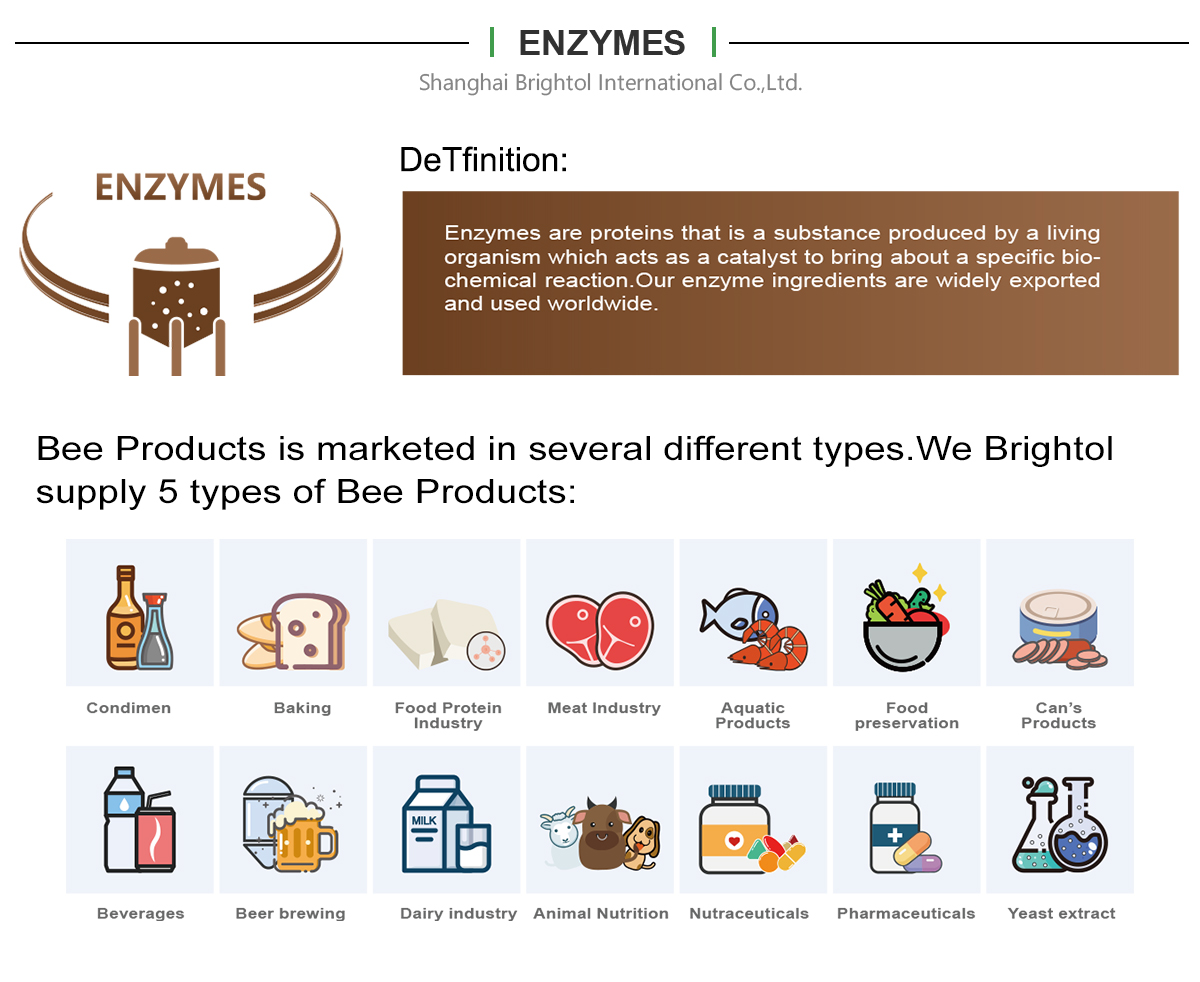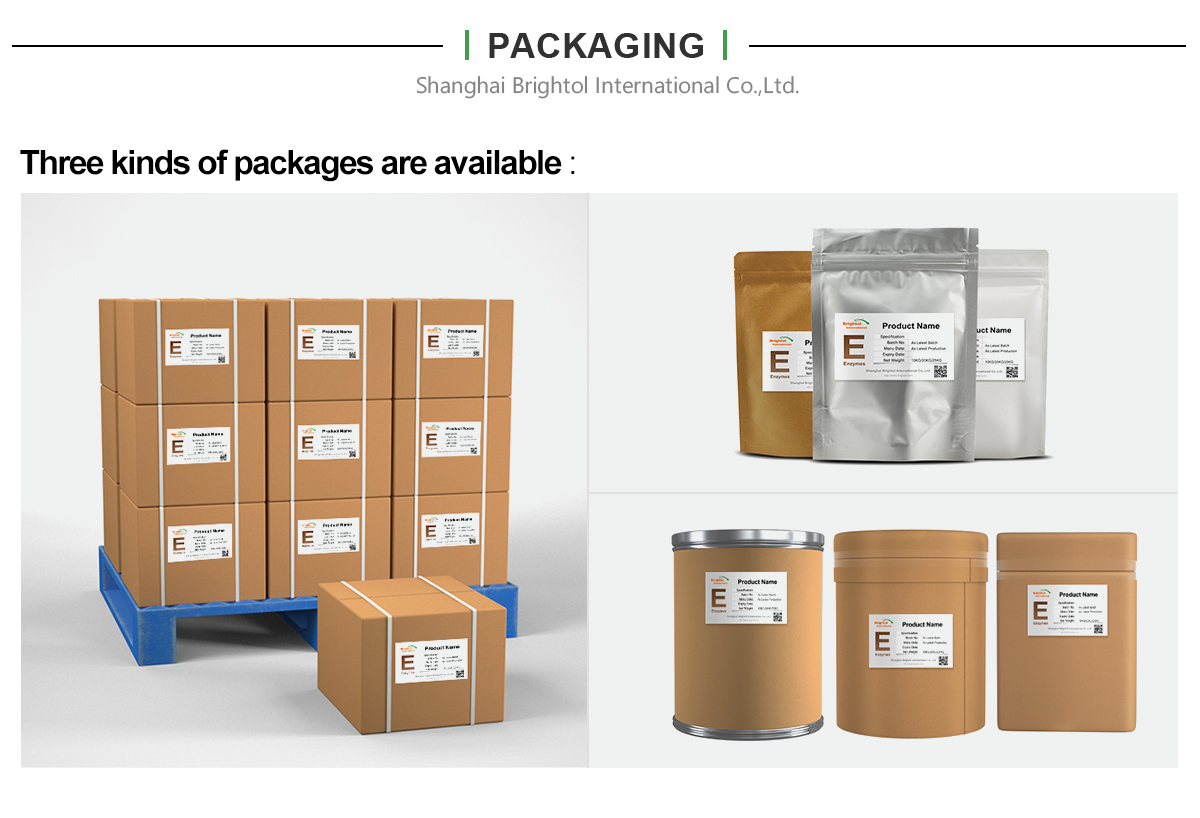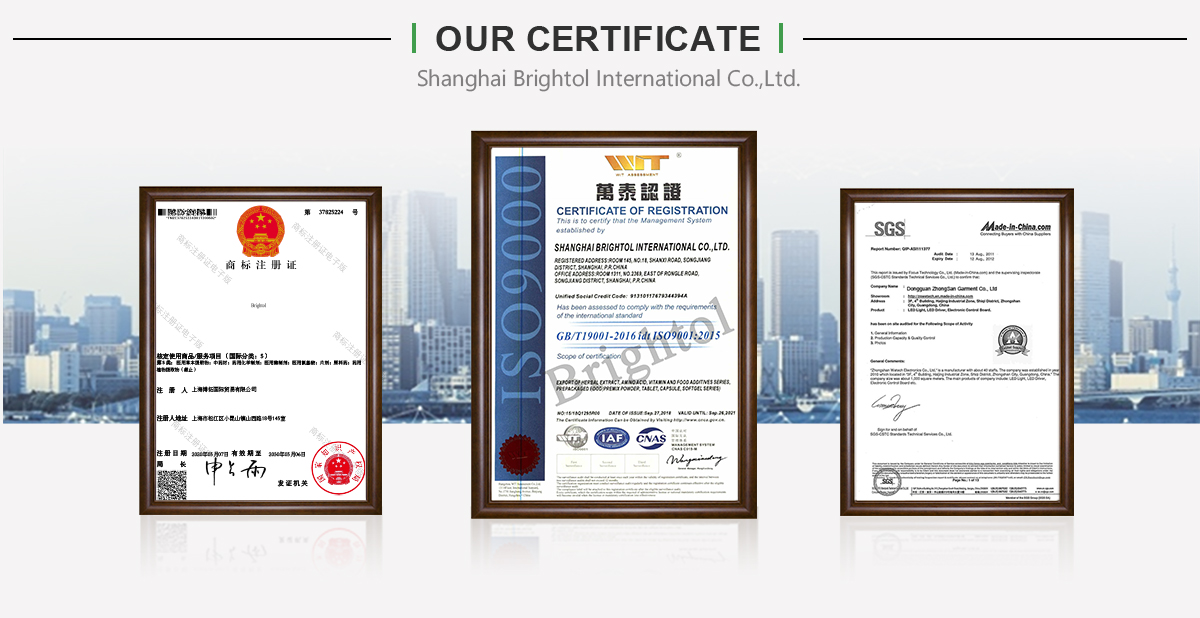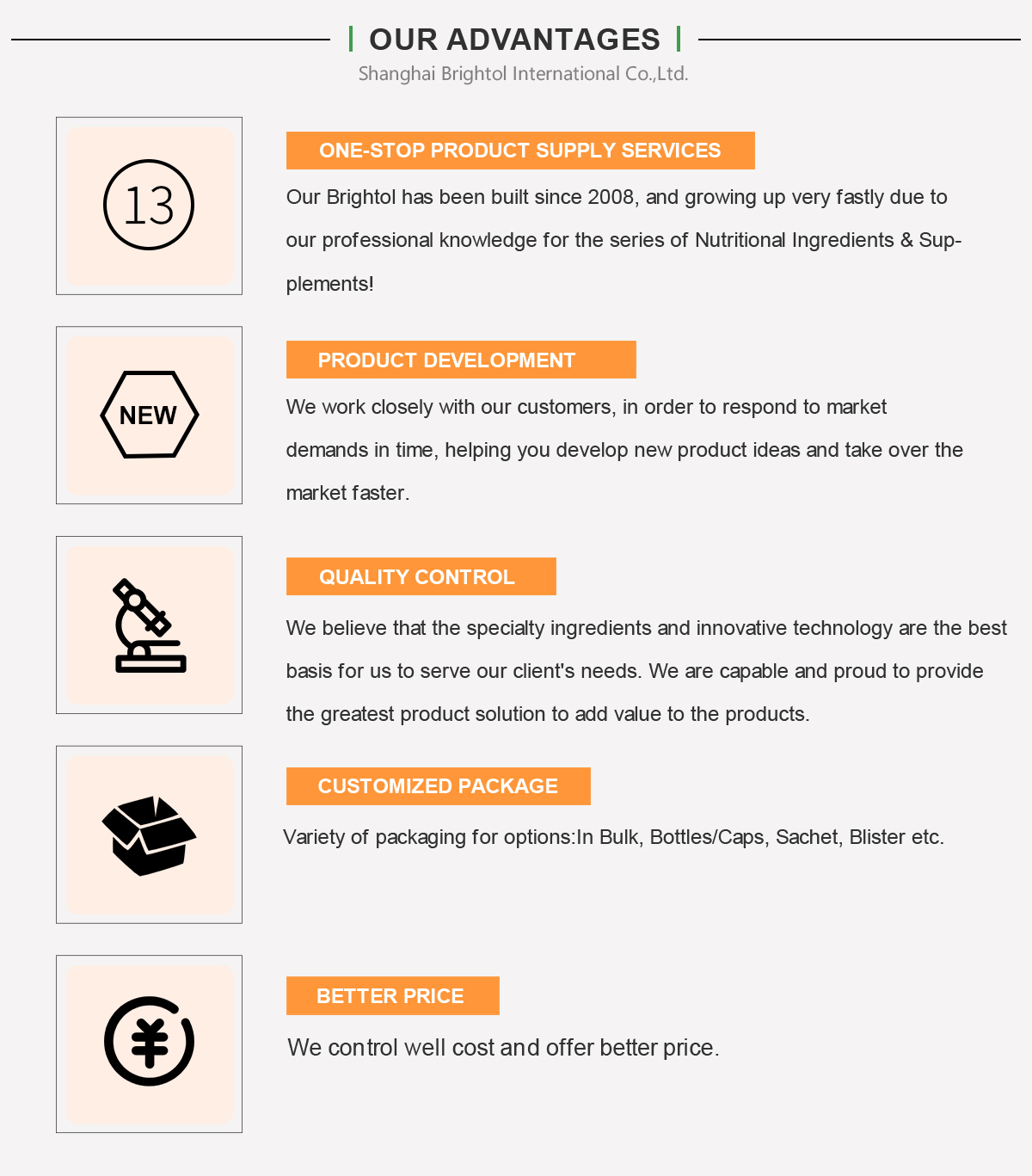

Product Name: Xylanase
CAS No.: 37278-89-0 (9025-57-4)
Description:
Xylanase (pronounced zy-lan-ase) is a naturally-occurring enzyme that can have beneficial impacts on human health and digestion. Fungi and bacteria produce xylanase, and it's produced by insects, crustaceans like snails, and even seeds. Mammals, including humans, do not produce xylanase, but some of our gut bacteria do. Scientifically speaking, it is an enzyme that breaks down xylan, a type of hemicellulose, by cleaving the molecule’s beta 1,4 backbone into a simple sugar called xylose. Xylan is the second most common polysaccharide in nature and is a component of plant cell walls......
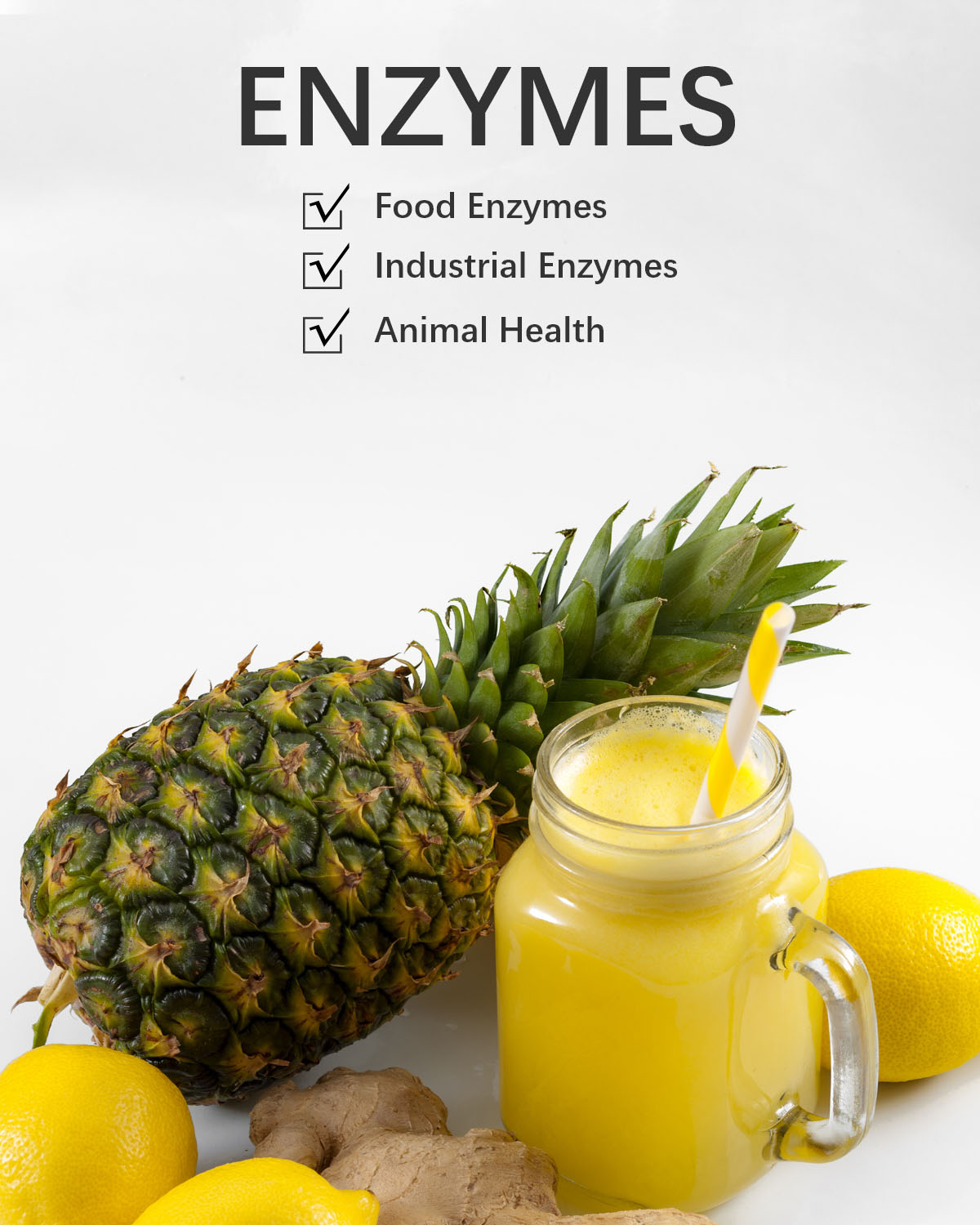

Product Name: Xylanase
CAS No.: 37278-89-0 (9025-57-4)
Description:
Xylanase (pronounced zy-lan-ase) is a naturally-occurring enzyme that can have beneficial impacts on human health and digestion. Fungi and bacteria produce xylanase, and it's produced by insects, crustaceans like snails, and even seeds. Mammals, including humans, do not produce xylanase, but some of our gut bacteria do. Scientifically speaking, it is an enzyme that breaks down xylan, a type of hemicellulose, by cleaving the molecule’s beta 1,4 backbone into a simple sugar called xylose. Xylan is the second most common polysaccharide in nature and is a component of plant cell walls.
Xylanases are useful for microbes and smaller organisms since it allows them to extract nutrients from plant matter with high fiber content. These same properties also make xylanase commercially important because it can break down plant fiber for a variety of uses from dough conditioning to juice clarifying to paper processing. In the human digestive tract, xylanase can break down xylans you eat, liberating more nutrients from vegetables with high fiber content and preventing some of the gas or digestive discomfort that is often associated with fibrous veggies, grains, and legumes.
Health Benefits
1. Better digestion of plant-based foods which may help increase the availability of nutrients.
2. Potentially increase xylan-based prebiotics to support healthy intestinal bacteria.
3. Help reduce gas or intestinal discomfort from eating some difficult-to-digest plant foods such as beans, cereals, and fibrous vegetables.
4. Degrade biofilms associated with various microorganisms.Many microbes produce a protective film that protects them from destruction, including some that can cause food poisoning and more serious infections.
